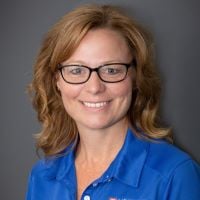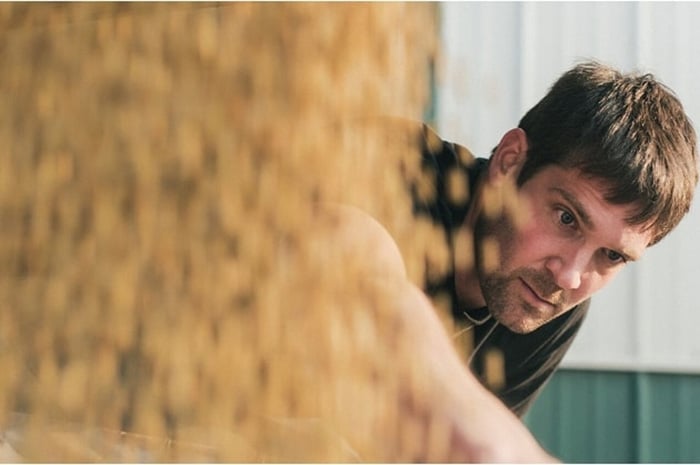Melissa Fick has spent her entire life steeped in agriculture. As she was recently promoted at Minnwest Bank, she’s noting how agriculture — from farming to ag-related professions — is becoming more female.

Fick was recently named Market President for the community bank’s branches in Luverne, Minnesota, a town of 5,000 nestled in the farthest southwest corner of the state.
After growing up on the family farm where her parents raised cattle and hogs, she studied ag business and ag marketing at South Dakota State University.
From there, she began her career in banking, first at a credit union in Sioux Falls, South Dakota in consumer lending and management roles. She later transitioned into ag lending at Minnwest Bank, continuing to take on leadership roles as she progressed.
And farming is still very much a part of Fick’s life, as she and her husband have a crop operation outside of Luverne.
Women in ag: Expanding roles
As someone whose life and career are based in agriculture, Fick has noticed an evolution in the past decade: Women are making inroads in agriculture, becoming more active and involved as professionals and owner-operators.
In the lending office, she’s seeing more women as decision-makers in family farming operations.
“Women come in with their husbands to sit down with the financial statements,” Fick says. “They want to know how the operation did and what can be done to make it better and more profitable. And they are often right beside their husband comparing numbers when looking at major changes, like expansions.”
She’s also seen an influx of women building great careers as providers of critical ag services. From the large animal vets that visit farm and ranch sites to agronomists to attorneys, opportunities abound for women who want to make a difference in ag — even if they don’t want to farm.
The USDA’s 2017 Ag Census reflects these trends — women taking on more active, hands-on roles in ag; and there’s every reason to believe the 2022 Census will reflect growth in women taking roles that traditionally belonged to men.
Fick’s advice to young women considering a career in ag: “Don't hesitate. If it's your passion, and you think you can do it, get out there and try. There are opportunities for anybody out there.”
Building relationships in Luverne
Fick was drawn to the role as Market President because she’s enjoyed being a manager and leader.
“That led me to think that Market President was a role I could do,” she says. As top leadership of these branches, Fick also has an important public-facing role, creating opportunities to bolster Minnwest’s presence and impact on the community. That means networking at various ag events — from beef banquets to pork producer gatherings — as well as organizing marketing seminars and pledging support for local events and causes through sponsorships.
To Fick, this work enhances Minnwest’s value as a lender in the community. When people are involved in everything from the chamber of commerce to ag groups to serving on nonprofit boards, they become better informed experts on the local community and its economy. That’s not only helpful to borrowers making big decisions, it also aids in economic development.
Building long-term relationships with personalized service
“One thing that I think is great is every operation is different. It's not like cut and dried and it doesn't all fit in a box. Some have off-farm income or they are more heavily into crop versus livestock,” Fick says. “That's great because you get to know your customers on a personal level and understand what works for them.”
Minnwest Bank has achieved the highest market share as an ag lender in the Luverne area. While the bank’s competitive rates and cash management tools provide value to ag producers, Fick is passionate about the value Minnwest places on personalized service.
She recalls working with young farmers as well at operations that are transitioning to the next generation. Minnwest Bank is unique in that they will connect producers to outside supportive programs such as an FSA or RFA, she says.
“We hold their hand and walk them through that full process and it can be very, very time-consuming and exhausting at times. But we’re building a long-term relationship, and take pride in helping them achieve their goals.”
Eventually, that farmer will no longer need an FSA guarantee, and they’ll be more likely to continue to build the relationship with the lender through future expansions and growth. They’ll return to the lender with a track record of going the extra mile to understand their operation.
“One thing that I think is great is every operation is different. It's not cut-and-dried and it doesn't all fit in a box. Some have off-farm income, or they are more heavily into crop versus livestock,” Fick says. “That's great because you get to know your customers on a personal level and understand what works for them.”


